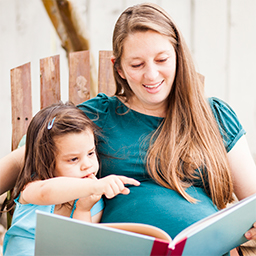If you’ve ever considered egg donation or wondered why it’s so important, you’re in the right place. Egg donation plays a vital role in helping people build families when their own paths to parenthood hit roadblocks. Below, we’ll explore five reasons why egg donors are needed and how they make a difference for intended parents.
1. Supporting Couples and Individuals Facing Infertility
Infertility doesn’t have a single cause, it’s complex. For some women, carrying a pregnancy isn’t the issue, but their eggs or ovaries might not cooperate. Factors like genetics, age, or egg quality can stand in the way, and sometimes the reason remains unclear, which can feel disheartening.
After trying unsuccessfully to conceive with their own eggs, or enduring losses, many turn to donor eggs as a solution. It’s rarely a first step; it’s a choice made after a long, emotional journey. By donating eggs, you offer hope to those who’ve faced these challenges.
2. Opening Doors for Older Women
Fertility naturally declines as women age, especially after the mid-30s. This shift happens because the number and quality of eggs decrease over time. A woman starts life with millions of eggs, but by menopause, only a small fraction remain—and older eggs are more likely to carry issues that affect pregnancy success. That’s why egg donors are typically between 19 and 30, when eggs are at their healthiest.
Life today offers women more paths than ever: careers, relationships, personal goals, and because of these demands, many choose to start families later. Egg donation provides an option for those who become parents after 35, aligning with their timelines and circumstances.
3. Overcoming Health Barriers
Certain medical conditions can make conceiving with one’s own eggs difficult or impossible. Here are a few examples:
Ovarian Challenges: Conditions like premature ovarian failure (affecting 1-2% of women under 40), PCOS, or endometriosis can disrupt egg production or function. In some cases, the cause isn’t pinpointed.
Cancer Treatments: Chemotherapy, radiation, or surgery can damage reproductive organs, impacting fertility. For cancer survivors, donor eggs often become their route to motherhood.
Genetic and Autoimmune Issues: Genetic disorders might risk passing on serious conditions, while autoimmune diseases can harm ovaries or increase miscarriage odds, making donor eggs a safer choice.
This is why egg donors go through detailed screening of their medical and genetic history, as well as mental health evaluations, to ensure the process works well for everyone involved.
4. Helping Gay Couples Build Families
Egg donation isn’t just about female infertility. Male same-sex couples, for instance, also rely on donors to become parents. Adoption can be a tough road for gay couples, which is why so many opt for surrogacy. Surrogacy is where a woman carries a child for them, paired with eggs from an Egg Donor, which allows gay couples to create a family they have a biological connection to.
5. Making Parenthood Possible
Egg donors have the power to transform lives. If you’re thinking about becoming a donor, consider the impact: you’re helping intended parents in need move from longing, to holding a child. Your choice could be the start of someone’s family story.









